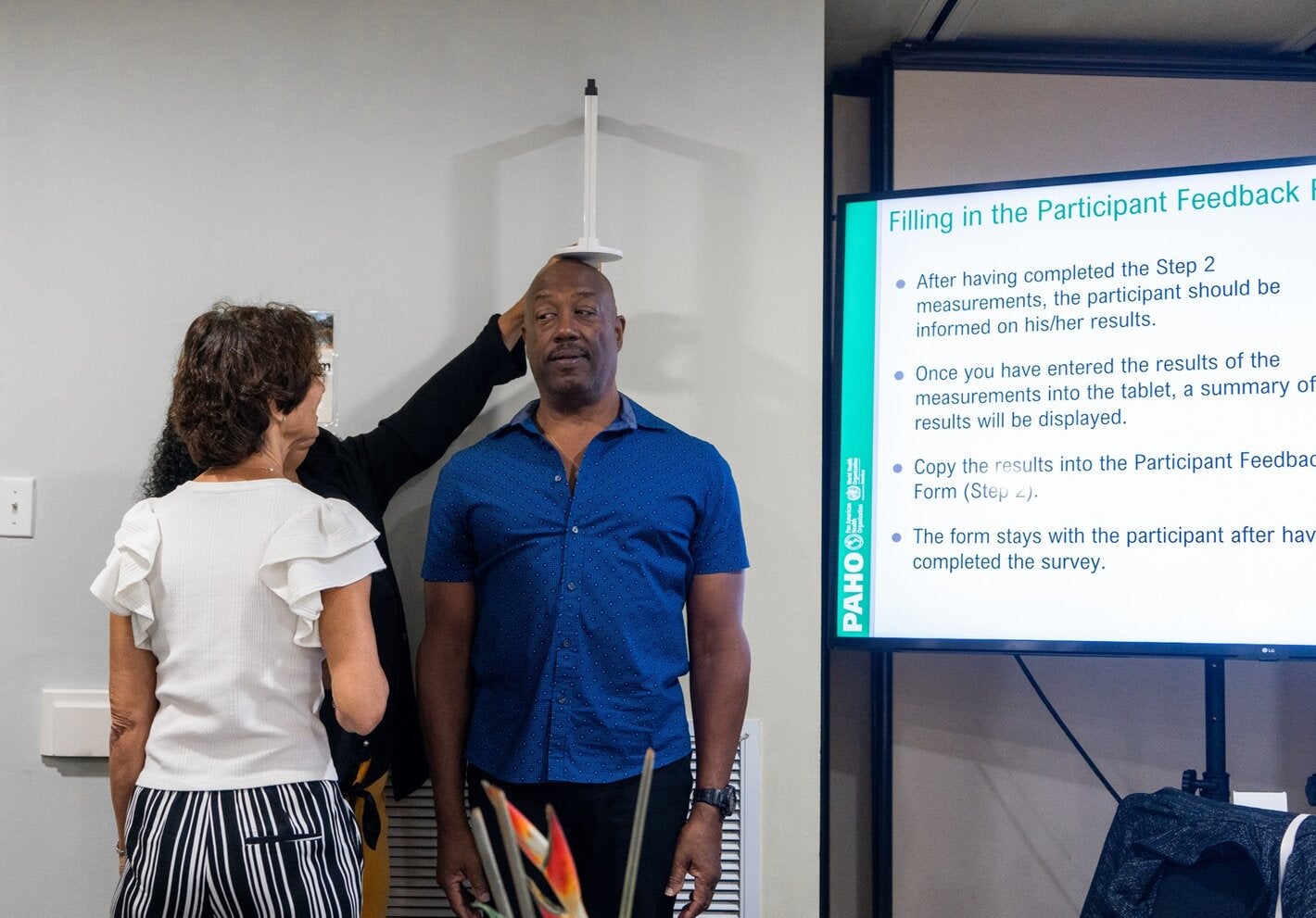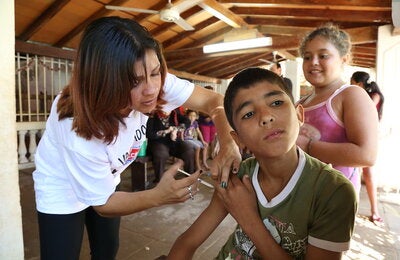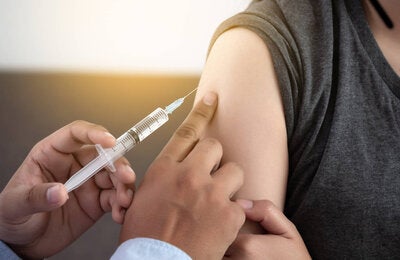
The survey will collect information about the health, lifestyle and mental health of Aruba population that will help health decision makers.
Oranjestad, 22 March, 2023.- The field work of the National Health Survey, STEPS 2023, started this month. The 35 data collectors trained by the Department of Public Health, with the collaboration of PAHO, will visit homes to collect information about health, lifestyle and mental health from a representative sample of 5,120 adult citizens. The information obtained will be key input for making decisions on policies and programs to prevent chronic noncommunicable diseases and promote mental health and well-being.
The PAHO/WHO STEPS surveys are a standardized method used for collecting, analyzing and disseminating nationally-representative information related to risk factors and noncommunicable diseases. STEPS produces quality data on over 10 topics, such as tobacco and alcohol use, physical inactivity, unhealthy diet, overweight and obesity, raised blood pressure, diabetes, cholesterol, cardiovascular diseases, cervical cancer screening as well as mental health. It is recommended that it is implemented every 5 years to monitor the changes on health indicators.
STEPS is designed to help countries build and strengthen their surveillance capacity. The survey has core and expanded questions and measurements, and is sufficiently flexible to allow the comparability of data within and between countries, while also responding to local information needs. STEPS captures 11 of the 25 indicators outlined in the NCD Global Monitoring Framework, providing data to report on the commitments made by countries.
As its name suggests, the survey consists of three steps: first, a questionnaire administered through a face-to-face interview; second, the interviewer takes physical measurements such as blood pressure, height, weight, hip, and waist; and the third step consists of biochemical measurements, including blood glucose, cholesterol, triglycerides and urinary salt.
PAHO is working with member states to implement STEPS surveys in 12 countries. The technical assistance includes supporting countries through the entire process, from planning through implementation, data management and reporting. Since 2015, the data collection is done electronically using eSTEPS, an electronic tool that uses Android operated tablets and an online platform that allows to track field work progress and monitor quality assurance in real time.
An essential component of the STEPS survey is the training of the data collectors who must be familiar with the procedures to identify the households in the field, the use of fieldwork forms. They also need to have interview skills and know strategies to obtain the cooperation of the population.
Four days fieldwork training
PAHO, in coordination with the Department of Public Health, and the Central Bureau of Statistics, organized a four-day fieldwork training that covered both theoretical knowledge and practical skills, including demonstrations of the use of Android devices to collect the information, of the standard protocol to take and record blood pressure and physical measurements.
The survey was presented to the public in a press conference led by Dangui Oduber, Minister of Tourism and Public Health of Aruba, on 27 February. The authorities encouraged the citizens to participate in the survey, should they be approached by one of the interviewers, and explained that the information produced by STEPS will be used to guide health policies and interventions in Aruba.
Data collectors will be identified by their uniform and a STEPS id badge. The field work is scheduled from March 4 to the end of May 2023. The selection of participants is randomized, using a scientific methodology: first, an address is randomly selected, and then, the interviewer lists the number of persons between 18 and 69 years old living in the household and, using the tablet, one of them is randomly selected and invited to participate.



